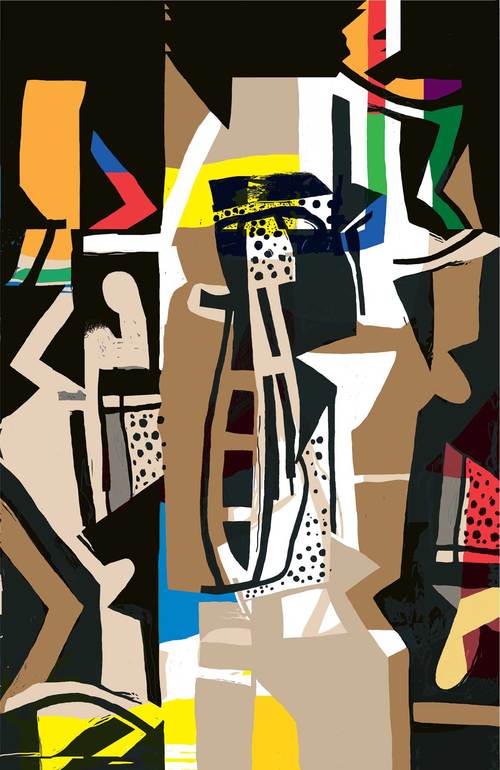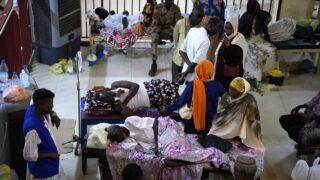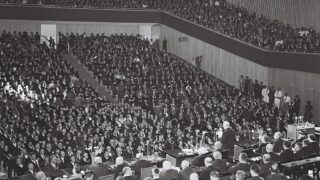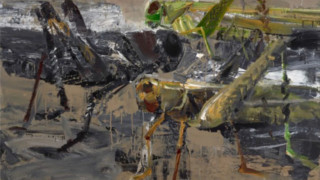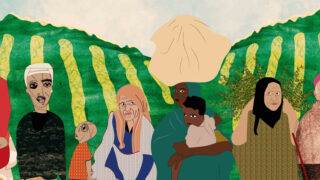Nothing but questions? Not quite so, because the values that humans have adopted, and by which they reason, remain intact. Without values, one might make do with a humiliating reality, accepting it as “reality”, that is, incontestable. The latter is often the easiest and most common of assumed approaches, but is wrong by all accounts. It is wrong because, to begin with, there’s realism, which has demonstrated that abysmal declines are often followed by bright revivals. Countless examples in our region and worldwide attest to that, both nowadays and in the past. There’s thus no reason for the future not to follow suit. Then there’s “ethics” (for lack of a better term), which renders tolerating injustices and misery an appalling act.
In turn, ethics bring forth a third of these values: willpower. Without willpower, for instance, the present Palestinian generation, almost 75 years into the Nakba, would have given up and surrendered. Rather than surrender, however, they have risen up and resisted time and again, collectively and individually (see Mohammed El Kurd UN General Assembly speech and the resilience of Sheikh Jarrah residents). And here I’ve intentionally chosen Palestinians for an example, not only to annoy the cynics and collaborators out there (be they aware of their collaboration or not), but also because the Palestinian situation is the most horrendous. It is deliberately engineered to expose such a level of blatant injustice and sweeping complicity. And while there absolutely are multiple and growing forms of global misery, where entire communities are subjected to persecution, exploitation, and repression, and where that criminal, profiteering, and power-seeking disregard for the future of humanity proliferates – including the destruction of both nature and climate, creating disasters, famines, and forced migrations – Palestine remains a unique case.
Notably, having recourse to such fundamental values is no cure for confusion, anxiety, or doubt. And yet, they’re essential to bring about that vital, necessary, and desired change; else these values would have been pointless, or possibly meaningful only in instances of running individual and family life, which, in itself, is becoming increasingly difficult.
That necessary change would grant people their basic human rights and enable a dignified life in every sense. It would also prevent slipping back into tyranny, whatever its façade may be, which is where many successful revolutions have, in fact, ended up. And by the way, the litanies that the idle, or those who are used to defeat, recite is not enough (which is a real problem, even for those who reject such defeats, just as it is for those who believe themselves to be “revolutionaries”). No, the answer cannot lie in words, slogans, nor, more crucially, be obvious. Sticking to principles, as important as that is, shall not suffice at all, nor shall even convictions that prompt action. Actions can be reckless, self-absorbed, and unconscious – in the same manner in which prayer is frequently practised. Prayer is neither kneeling or movements that the body performs, the charms that the tongue declaims, nor fear of punishment, swiftly forgotten before plunging into sin again – which is the case with all religions.
Such prayers are meaningless, unless considered a form of submission to a sacerdotal system (of any religion) to entrench its influence and reach. Prayer does not improve human behaviour, viewpoints, nor does it deter from deadly sins, greatest of which is the injustice inflicted by humans on their fellow humans.
The young men and women of this region – and who make up the vast majority of the population – have led at least two major uprisings in less than ten years, interspersed by multiple acts of resistance, all throughout the region. What followed the events of 2011 is terrifying; it is still happening in many places, or at least its implications are in effect still. What’s happening now, in the aftermath of 2019, is frustrating, and is happening still in Lebanon, Iraq, Algeria, Tunisia, and Sudan. This is not for lack of courage, sacrifice, even self-sacrifice, or lack of will or determination. It is said, however, that the counterrevolution can be explained by lack of organised action, agendas, and plans among the protesters who led the uprisings. It is said that this here is the forces in power getting ready to commit unimaginable atrocities, destroying communities to maintain power in the hands of a few, who have turned into a mob of looters and plunderers. It is said that regional and global “balances” are going through “turbulence”, where all the familiar concepts and rules have collapsed, which has enabled the forces in power to intervene. Their intervention, it is said, has become all too easy with “globalisation” and chaos, and, is carried out to thwart change, or to tailor change to meet their own interests. And all that is certainly common sense.
And yet, perhaps the defect lies elsewhere, well beyond such considerations. Perhaps it lies in the fact that the world, along with all its equations, has completely changed, while we continue to follow the same old mental map to make sense of the world, even if with a few but inadequate adjustments. Perhaps a real and unhurried reflection on that change, as individuals and communities, could help us feel our way through reality, in depth, as it really is, and understand its dynamics. Perhaps it is then that we could explore this new world that unfolds before us (and, incidentally, threatens us with demise). That way, we’d be able to see what lies between us and that world, what we must do, and how; for “the path reveals itself as we walk it” and what’s required today is to “invent, act, and prove movement by walking”. And so, until then, all questions shall indeed remain open.
• Translated from Arabic by Yasmine el Haj

